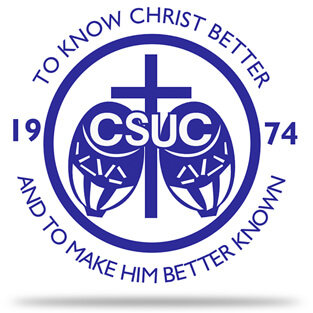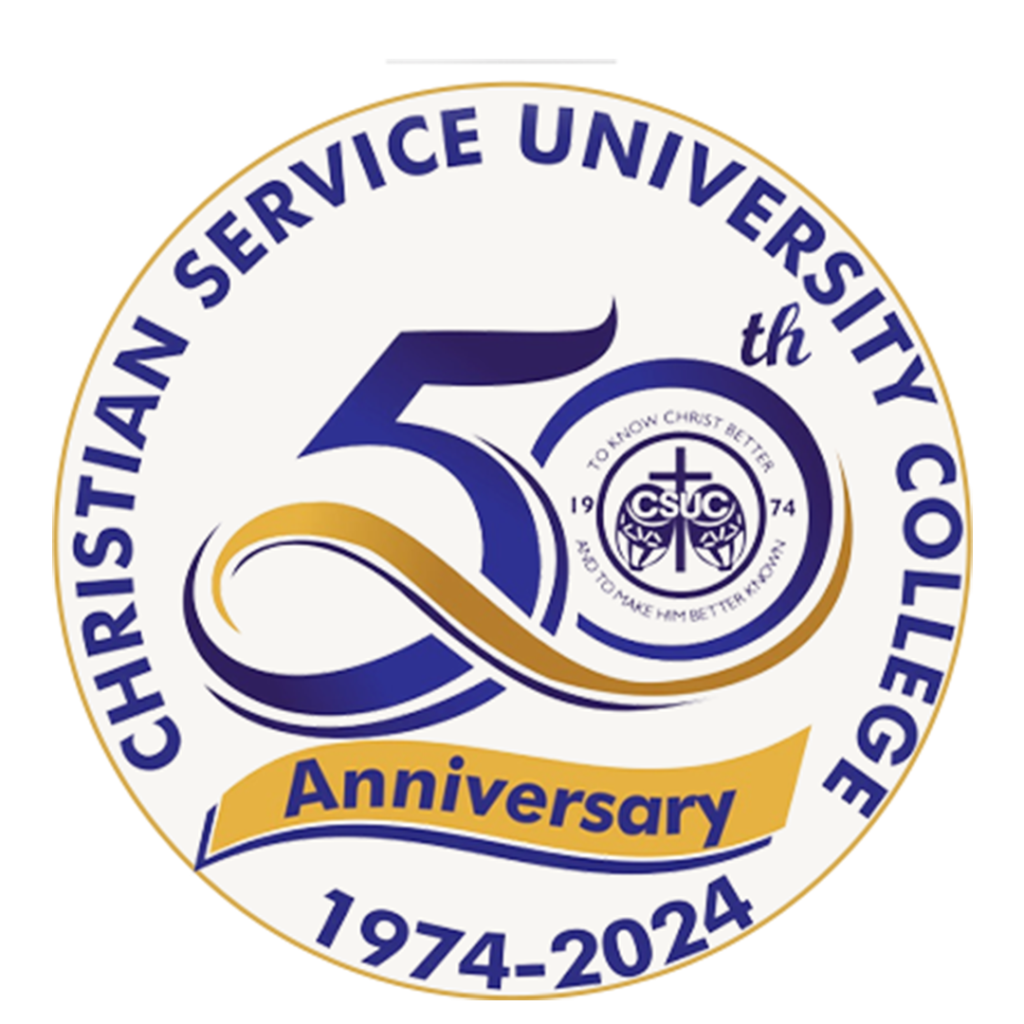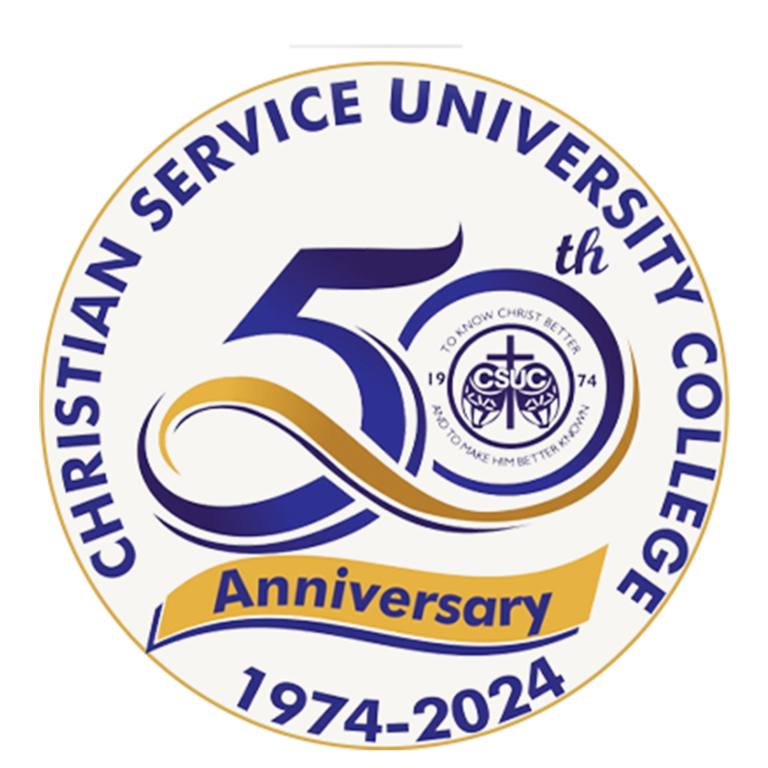From
Office of Institutional Advancement
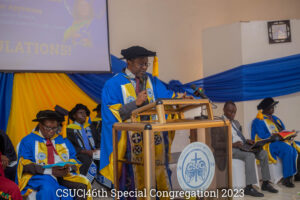 The President of CSUC, Prof. Sam Afrane has urged the government of Ghana and other relevant ministries on education to as a matter of urgency, develop an institutional framework with appropriate policies and programmes to direct and harness graduate research. He made the call at the University College’s 46th special graduation ceremony organized for the School of Graduate Studies.
The President of CSUC, Prof. Sam Afrane has urged the government of Ghana and other relevant ministries on education to as a matter of urgency, develop an institutional framework with appropriate policies and programmes to direct and harness graduate research. He made the call at the University College’s 46th special graduation ceremony organized for the School of Graduate Studies.
Special 46th Graduation Ceremony
A total of 206 students graduated in 5 out of the 7 postgraduate programmes currently being run at the CSUC. The statistics were: MSc Accounting and Finance (119), MSc Monitoring and Evaluation (60), MA Christian Ministry with Management (20), MSc Corporate Planning and Governance (5) and Postgraduate in Christian Ministry (2). The gender ratio was 162 (males) and 44 (females).
Research and Development
Commenting on the theme for the graduation, “Postgraduate Education and National Development”, Prof. Afrane opined that postgraduate education, which focusses on depth and quality of research is expanding numerically globally and in Ghana. He alluded to local and international statistics to support the notion that sustainable development of countries and industry is driven by strategic research and called for much investments to promote quality research at the postgraduate level.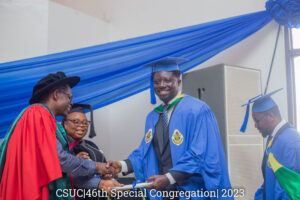 He cited the OECD report that in 2020, the global research and development expenditures were estimated at $2,352 trillion with the US leading, followed by China, Japan, Germany, South Korea and France in that order. He further added that developed nations contribute higher percentage of their GDPs to invest in research. However, Prof. Afrane situated Ghana’s approach to postgraduate research within the broader global context and questioned the readiness of government, academia and industry to harness the nation’s research potential to promote national development in all its facets. In his opinion, it appears that the numerous research reports generated by the universities in Ghana were only intended to satisfy the “requirement of awarding Masters or Doctoral degrees”.
He cited the OECD report that in 2020, the global research and development expenditures were estimated at $2,352 trillion with the US leading, followed by China, Japan, Germany, South Korea and France in that order. He further added that developed nations contribute higher percentage of their GDPs to invest in research. However, Prof. Afrane situated Ghana’s approach to postgraduate research within the broader global context and questioned the readiness of government, academia and industry to harness the nation’s research potential to promote national development in all its facets. In his opinion, it appears that the numerous research reports generated by the universities in Ghana were only intended to satisfy the “requirement of awarding Masters or Doctoral degrees”.
The Way Forward
Harnessing the research potential for development require urgent action from all stakeholders and based on this understanding, he suggested a six-point agenda framework for consideration by the government through the relevant educational ministries as follows:
- Government should collaborate with relevant stakeholders to identify and set research agenda for graduate research that meet the development needs of Ghana.
- Students who are selected or choose to work on some of these approved research topics from industry should be given research grants by the government and other potential beneficiaries from the private sector.
- Government scholarship for graduate education both home and abroad should be directed to support students’ working on important research problems that are of high priority to the nation.
- Government should assist and support universities and research institutions to disseminate and commercialize their research output.
- Government should institute a monitoring and evaluation mechanism to track ongoing graduate research and reports regularly on completed projects and their outcomes, dissemination activities, and uptake initiatives.
- Finally, the government should collaborate with the private sector, NGOs, bilateral and international bodies and Individuals to establish a national Research Fund dedicated to financing strategic graduate research.
Prof. Afrane expressed optimism that the implementation of the above interventions will transform postgraduate education into a meaningful instrument for national development. He ended his speech by congratulating all grandaunts and charged them to apply the godly principles they had learnt from CSUC and endeavour to brighten the corners where they would find themselves.
